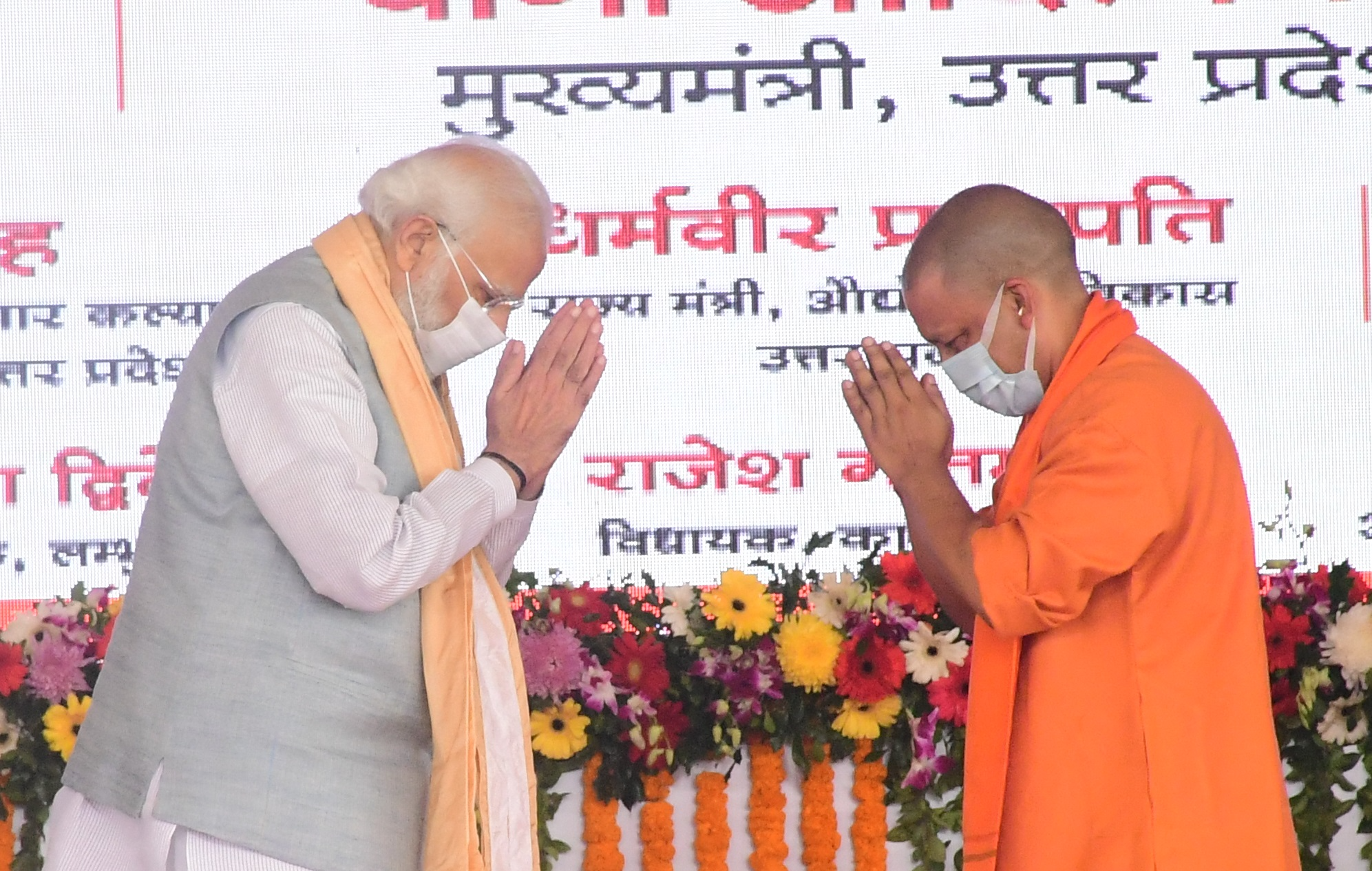Indian voters will go to the polls starting February 10 for elections in five states including Uttar Pradesh, the country’s most populous. The results will be declared on March 10, and have important implications for Prime Minister Narendra Modi’s agenda and the 2024 general elections. We spoke to Eurasia Group expert Diwakar Jhurani to get a better sense of what to watch for.
What are the stakes for Modi?
About 280 million Indians will vote to elect five state governments in February and March. Modi’s Bhartiya Janata Party currently governs in all but one of these, so the elections will test Modi’s ability to secure votes for state leaders who aren’t as popular as he is.
The elections in Uttar Pradesh — which accounts for 15% of the seats in the national parliament — are the most important for Modi. While the prime minister hails from Gujarat state, he represents Uttar Pradesh in parliament. The BJP won a landslide victory (306 out of 403 seats in the state legislature) in 2017 thanks to Modi’s popularity and a divided opposition, and the party capitalized on this victory by appointing a polarizing figure, Yogi Adityanath, as chief minister. This year, Modi has put his weight behind Yogi’s reelection and a platform focused on economic development, jobs, and rule of law in the state.
The other states holding elections are Punjab, Goa, Manipur, and Uttarakhand. All but Punjab currently have BJP-led governments. While these are less politically important than Uttar Pradesh, the BJP will want to maintain control of them to sustain its national dominance — 19 of 31 Indian states and union territories that vote for state governments are currently ruled by the BJP and its partners.
What are the main issues in these elections?
Local concerns such as access to basic public goods and services, job creation, infrastructure, and the quality of governance are the most important in state elections. Historical data suggest that Indian voters tend to punish incumbents over dissatisfaction with these issues. Given that the BJP is in power in four of the five states holding elections, the opposition parties are feeling upbeat about their chances.
The BJP, however, is touting the success of welfare programs such as funding for toilets, affordable housing, and cooking gas. It is also bragging that its management of the pandemic has been more effective than that of Western countries. And Modi is deploying his “double engine” slogan, claiming that BJP governments at both the national and state levels will double the speed of development.
How will the outcome affect Modi and national politics?
These upcoming state-level contests will set the mood for the next two years ahead of the 2024 general elections. Electoral feedback matters to Modi’s governance style. A solid BJP performance — especially in Uttar Pradesh — would give him the momentum to build on an economic agenda on opening markets, liberalizing trade, and strengthening institutions. The more confident he feels, the more he will focus on these priorities. A weak showing, especially in Uttar Pradesh, would encourage Modi to turn toward populism and divisive identity politics to rally his base.
In Uttar Pradesh, most opinion polls are predicting a BJP victory, but the party will likely lose some seats after winning 76% of the total in 2017. Anything short of a BJP majority (ensuring a BJP chief minister) would be a major setback for Modi.
However, state election results will not necessarily be a leading indicator of Modi’s performance in 2024. Many voters who vote for regional parties in state elections typically end up voting for Modi’s BJP in national elections. But state electoral patterns will help understand how Modi prepares for 2024 and give clues about his agenda in the coming months.
What are the biggest longer-term threats to the BJP’s dominance?
The party’s strength is based on appeals to nationalism and religious identity and promises of competent governance delivered by a leader (Modi) who is perceived to be committed and incorruptible. Factors that have influenced elections in the past such as inflation, economic stagnation, and even joblessness have become less important at the national level. Yet the BJP’s formula doesn’t always work at the state level and credible regional leaders have shown themselves capable of giving the BJP a beating in elections held in states such as West Bengal, Rajasthan, or Delhi.
So, political alliances that challenge BJP on at least two of the three elements of its formula and have a credible face at the national level can give it a run for its money. Another chink in the BJP’s armor is the lack of good candidates to succeed Modi. Hence, a face from the opposition who appears a more natural successor to Modi than someone from the BJP may pose a threat to the BJP once Modi approaches retirement in the medium term.

